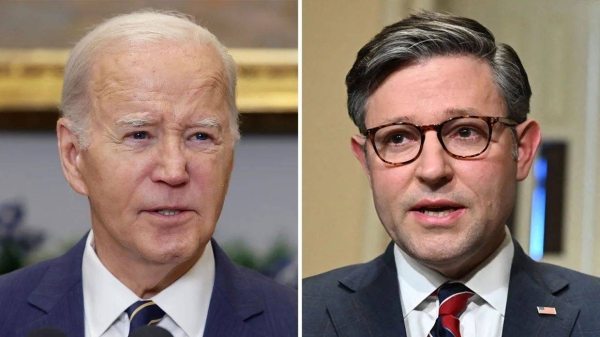
The decade I spent in the snake pit in Washington taught me one basic overriding lesson: Outsiders perennially overrate the decision-making processes of the US. Whether friend or foe of America, at some deep level most outside observers simply give the US more credit than it is due in terms of how its policies are made.
Or, to put it in Shakespearean terms, they believe America operates like “Macbeth” — with ruthless, conniving, highly rational players calling the shots — rather than “Hamlet,” wherein mistakes, misunderstandings and ineptitude tend to explain things. The wry explanation of Deep Throat, the key informant in the chilling political thriller “All The President’s Men,” gets it exactly right in explaining how Washington truly works: “Forget the myths you’ve read about the White House. These aren’t very bright guys and things got out of hand.”
In line with this overrating of the American policymaking process, outside analysts assume that, in the heat of domestic upheaval, any embattled White House will rationally act to change the subject; starting a war (“wagging the dog”) or manufacturing a crisis to change the subject from whatever scandal is buffeting them. But the actual historical record definitively proves otherwise.
For the simple bureaucratic truth is that US administrations find it very hard to concentrate on two major priorities at the same time. If they are obsessed with their immediate survival, it is not the time to venture into risky policymaking waters. Instead, any White House under siege tends to work on autopilot, merely perpetuating the policies they had been undertaking at the time the major crisis hit.
The Iran-Contra affair saw President Ronald Reagan pull back from any new initiatives in Latin America or the Middle East (the locus of the crisis). While he historically continued the process of dramatically winding down the Cold War, the basic policy had been put in place long before Iran-Contra made headlines.
Likewise, President Bill Clinton undertook no new major foreign policy initiatives while his impeachment battle raged; intent as he was on merely surviving. Like a tortoise, administrations pull themselves into their policymaking shells for protection, attempting nothing risky as they simply do not have the intellectual bandwidth for any new, adventurous initiatives.
Trump will be bloodied by the coming impeachment ordeal, but he will not be removed from office.
Dr. John C. Hulsman
As was true for Reagan and Clinton, it is highly likely that Donald Trump will survive the ordeal of domestic scandal. The politics of impeachment at present are simple: The Democrats have the votes in the House of Representatives (in which they have a majority) to impeach the president, but have nowhere near the required support in the Senate, where the Republicans have a majority. Two-thirds of the upper chamber is required to convict and remove a chief executive. Presently, the Democrats have 47 votes in the Senate, putting them an impossible 20 seats short.
The Republican Party is now wholly in thrall to Trump. While it is true that many of the Republican Senators personally dislike the bombastic president, the Republican base adores him. A late September Quinnipiac survey found Trump with an astounding 88 percent approval rating among the Republicans polled — the second-highest percentage for any GOP leader since modern polling began in the 1920s.
All of this analysis clearly leads to a number of important political risk conclusions about the US. Trump will be bloodied by the coming impeachment ordeal, but he will not be removed from office. US foreign policy (and domestic policy for that matter) will be on autopilot for the coming year at least, as a besieged White House will hunker down and survive, but will be cautious, pursuing the Jacksonian course that Trump has already laid out, eschewing new divergences from already-established American policies.
In terms of the Middle East, that means that the Trump White House’s return to America’s traditional post-1979 regional stance — with Iran as the ultimate foe and Israel, Egypt, and the monarchies of the Arabian Peninsula as its primary allies — will remain unchanged. In such a domestic political environment, it is unlikely that America will support military action against Iran, but it is also unlikely that Washington will seriously continue its halting flirtations with Tehran, which up until now have yielded nothing practical.
Instead, look for Trump’s policy of “maximum pressure” toward Iran to be continued, as any radical deviations from it — be they toward out-and-out military conflict or toward a more dovish stance on Tehran — are disregarded as being too risky, and taking too much attention away from the mere fact of political survival.
For, oddly enough, serious modern American domestic political crises have the unthought-of benefit of seriously constraining US decision-making, leaving the US following its established inclinations in terms of foreign policy. This allows for a more static, but also more stable and understandable, US to be assessed by the rest of the world.
In our present age of chaos and with much of the world unsure of what to make of the Trump phenomenon and its turn toward Jacksonianism, this will amount to a benefit in terms of understanding an America that so often of late has seemed unknowable.












